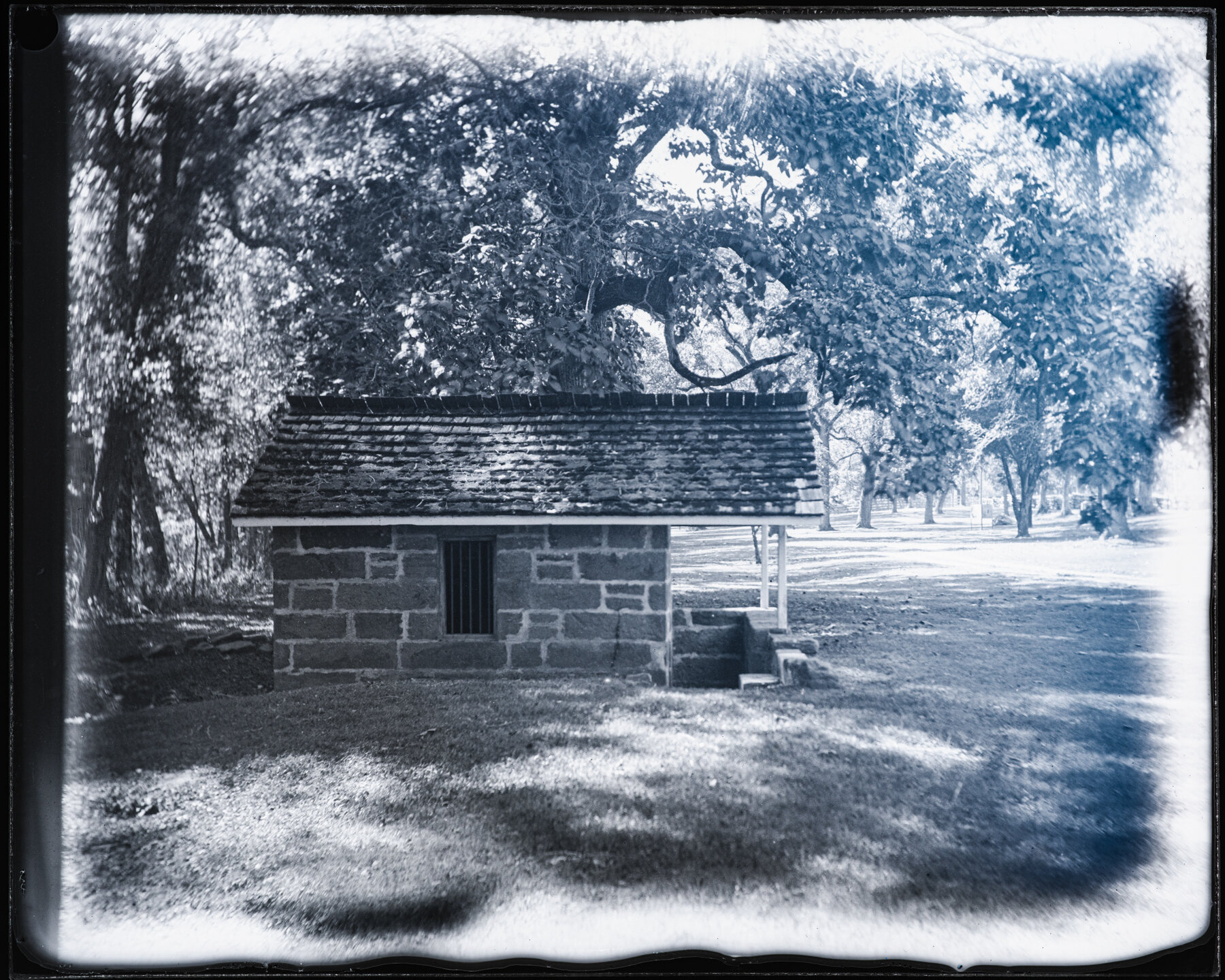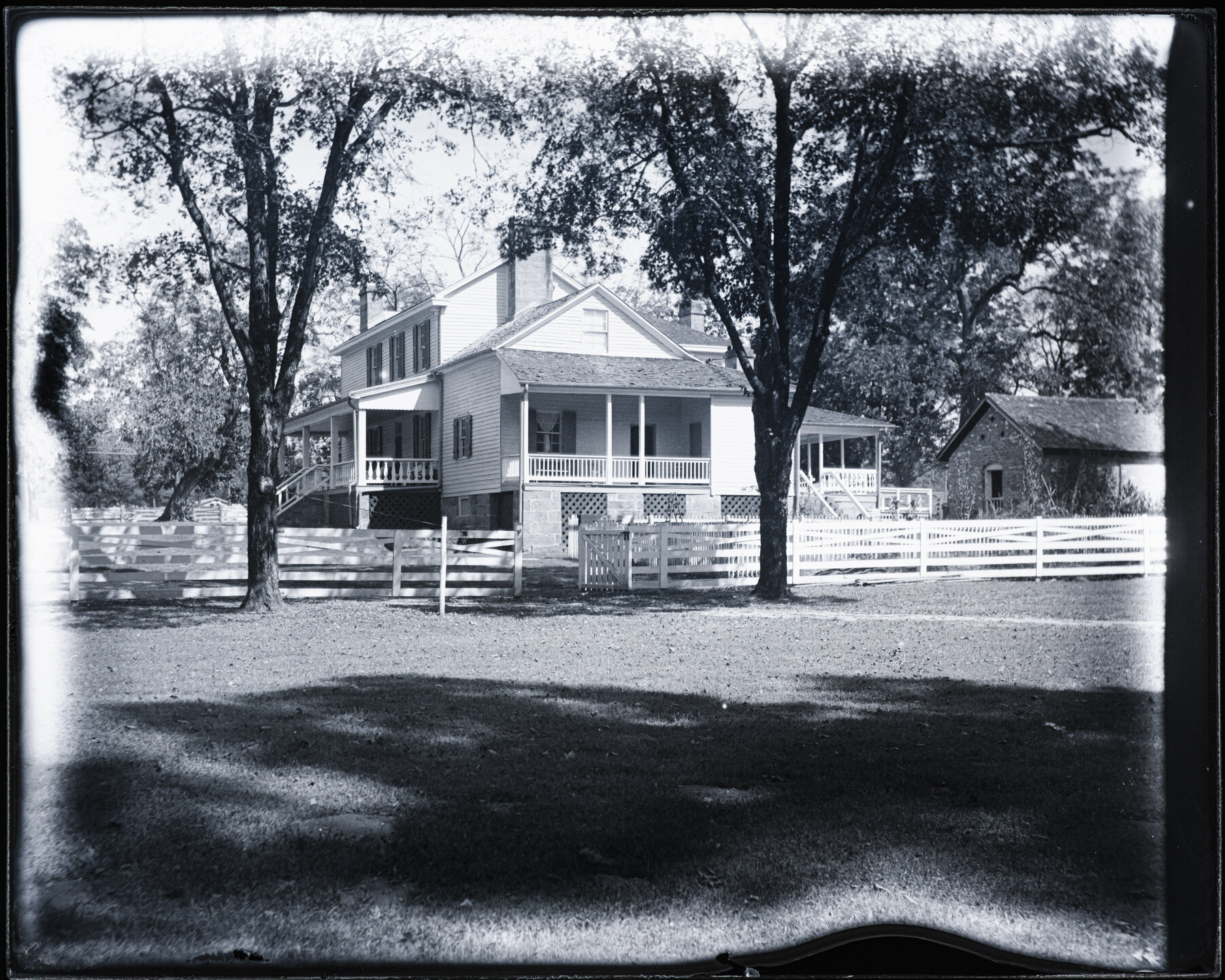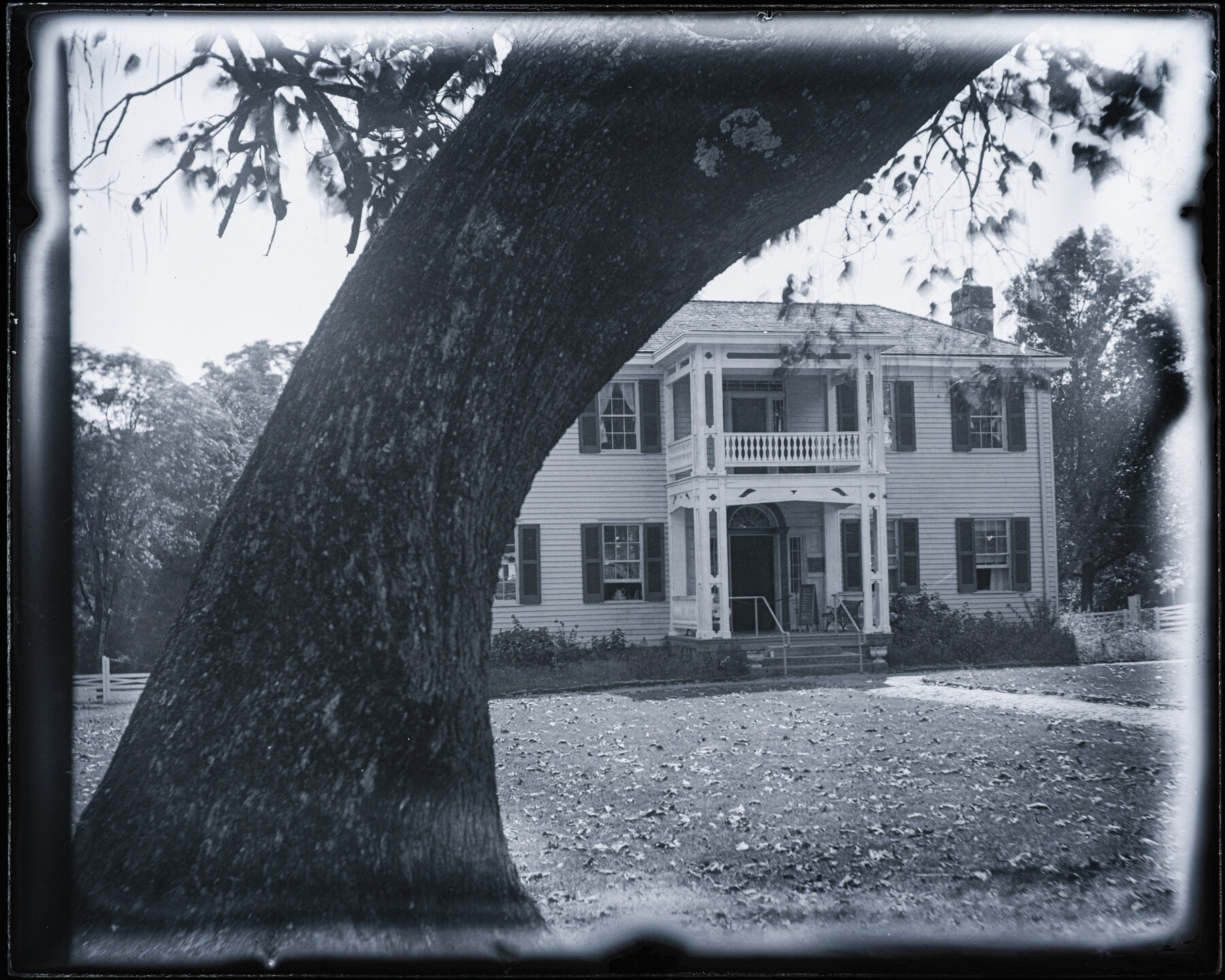Hunter's Home - Jennie Ross Cobb
Jennie Ross Cobb, is a photographer enabled by the invention of dry plate, transportation by railroad into Tahlequah, the mercantile might of Sears and Roebuck, and finally, by the photographic industry surrounding the Kodak Company in Rochester NY.
What is remarkable most is not that she is self-taught but what she photographed, hand-held, with frivolity and animation, socially capturing a period in Indian Territory which otherwise might be misinterpreted without the visual record Jennie created.
Hunter’s Home - the residence of Jennie Ross Cobb. September 2021
Contacting interpreter Jennifer Frazee of the Oklahoma Historical Society, we discussed re-enactment of some of Jennie Ross’s images - using the same methods she used and even photographing from the same locations. Our plan is to likewise develop the images from the closet darkroom Jennie used, and wash the film from the Spring House on the property.
It’s obvious that Sear’s and Roebuck no longer sells cameras, especially Jennie’s camera (circa 1904) so I turned to eBay and found a representative Seroco Camera (SEars and ROebuck COpany) manufactured by Conoley and similar to a Model VII, which originally sold for $8.95. The first few images I created on the grounds of Hunter’s Home were from hand-coated glass plates that I made and processed in my studio and darkroom at Arkansas Momentos in Rogers AR. In the gallery below you may see the spring house, the rear elevation of Hunter’s Home, and a dramatically curved Catalpa tree framing the front elevation.
I later used a modern view camera and rephotographed this scene on gelatin silver film manufactured by present-day Kodak.
Next steps are to get the SEROCO camera’s Wollensak shutter working so I can photograph hand held, in the spirit and style deployed by Jennie.
Catalpa tree framing Hunter’s Home.




